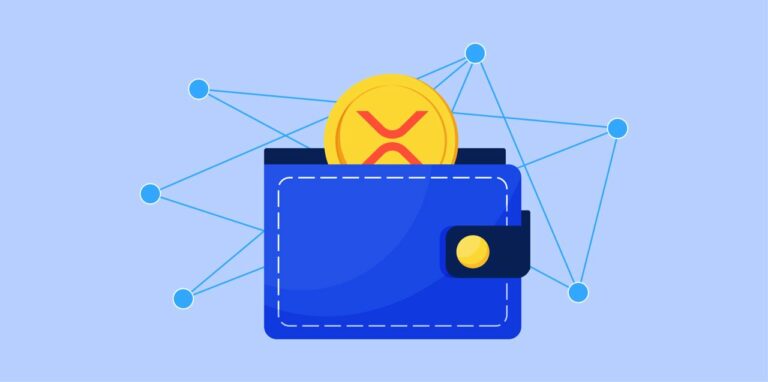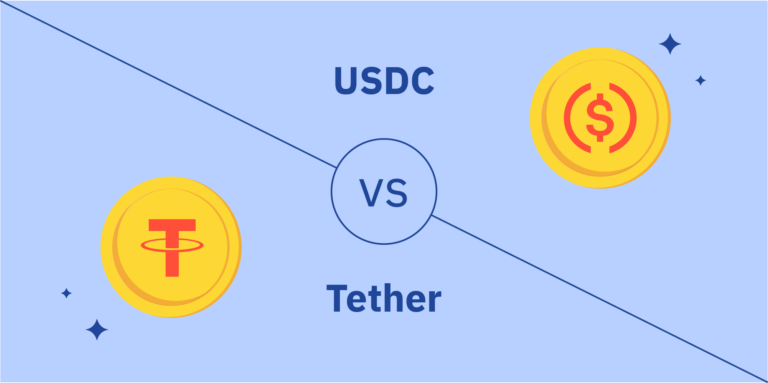What is Litecoin (LTC)?
Litecoin (LTC) is a trailblazing peer-to-peer cryptocurrency that thrives on an open-source network. Born in 2011 from the brilliant mind of Charlie Lee, a former Google engineer, Litecoin emerged as a swifter and more cost-effective alternative to Bitcoin. Fueling its operations is a decentralized ledger technology known as the blockchain, empowering secure and transparent transactions without any intermediaries.
At the core of Litecoin’s vision lies an unwavering commitment to enhancing the speed and efficiency of digital transactions while ensuring affordable fees. This groundbreaking feat is achieved through its ingenious mining algorithm named Scrypt, enabling Litecoin to process transactions a staggering four times faster than its Bitcoin counterpart. As a result, Litecoin has become the preferred choice for small-scale transactions and everyday usage, while Bitcoin predominantly caters to larger investments and transactions. Guided by an unyielding mission, the Litecoin team strives to augment the technology and infrastructure of LTC, upholding its core principles of decentralization, security, and affordability. To explore a deeper understanding of Litecoin and gain insights into its dedicated team, a visit to their official website will unveil a world of knowledge and innovation.
What is an LTC Wallet?
An LTC wallet serves as a sophisticated software program or hardware device that presents you with secure storage, seamless transmission, and reliable reception of Litecoin. It accomplishes this paramount task by preserving your private keys, the gateway to your valuable Litecoin funds, within a fortress of encrypted digital protection. The world of LTC wallets encompasses a diverse array of options, ranging from steadfast desktop wallets and convenient mobile wallets to versatile web wallets and robust hardware wallets. Each variant possesses its own distinctive features and varying degrees of fortified security measures. Meticulously selecting a trustworthy and impervious LTC wallet is of utmost importance. It will ensure shielding your Litecoin investment from potential hazards like malicious hacking, deceitful fraud, or theft. Embracing an LTC wallet empowers you with unparalleled convenience to effortlessly manage your Litecoin assets. It also helps you with conducting swift and secure transactions, and vigilantly monitoring your balance from every corner of the interconnected globe.
What is an LTC Wallet Address?
An LTC wallet address denotes a series of alphanumeric characters employed to identify and receive Litecoin within a wallet. Analogous to a bank account number, this address serves as a distinctive identifier for your wallet, facilitating the reception of Litecoin from other parties. It is imperative to note that each LTC wallet possesses a unique address, and multiple addresses can be generated within a single wallet. Reusing the same address for multiple transactions poses a risk to your privacy and security. Hence, it is advised against employing the same address repeatedly. Most wallets automatically generate fresh addresses for each transaction to preserve anonymity and hinder tracking.
Why Do You Need an LTC Wallet?
If you have your sights set on buying Litecoin (LTC), an LTC wallet becomes an indispensable companion, empowering you to safeguard, transmit, and receive your LTC with unparalleled ease. Embracing an LTC wallet opens up a world of exceptional advantages, including:
Fortified Security: Bid farewell to the fear of potential perils like intrusive hacking, deceitful fraud, or theft. An LTC wallet acts as a trusted guardian, diligently shielding your valuable Litecoin from these nefarious threats.
Seamless Convenience: Imagine effortlessly navigating the vast landscape of your Litecoin kingdom, effortlessly managing your treasure trove, orchestrating swift and secure transactions, and vigilantly monitoring your balance, all with the mere touch of a button, no matter where you roam across our interconnected world.
Unparalleled Accessibility: With an array of LTC wallet options at your fingertips, be it the pocket-friendly mobile wallet, the steadfast desktop wallet, the versatile web wallet, or the fortified hardware wallet, seizing control of your Litecoin funds and savoring uninterrupted access becomes an effortless endeavor, no matter where life’s adventures take you.
Commanding Control: Having an LTC wallet bestows upon you the ultimate supremacy, granting you full dominion over your Litecoin funds, while ensuring utmost management and fortification of your digital assets.
What are different Types of Litecoin Wallets
There are several types of LTC wallets available, each with its unique features and level of security. Here are three popular types of LTC wallets:
- Ledger Nano S Litecoin wallet: The Ledger Nano S is a hardware wallet that offers excellent security for your Litecoin. This impregnable vault stores your private keys offline, rendering it invulnerable to the clutches of hacking attempts. With the Ledger Nano S, accessing your Litecoin funds becomes an endeavor protected by an impenetrable shield, fortified by the sanctity of a PIN code and fortified by the e added layer of two-factor authentication.
- Paper Litecoin wallet: You can achieve simplicity and tangible security with a paper Litecoin wallet, a physical embodiment of your digital wealth. This document holds your public and private keys, while being disconnected from the vast web of the internet. This ensures safeguarding your funds from the lurking threats in the virtual realm. Remember, however, remember to preserve this document safely, shielding it from any physical harm or loss.
- Litecoin wallet app: A Litecoin wallet app is a software program that you can download on your mobile or desktop device. It allows you to store, send, and receive Litecoin on the go. Litecoin wallet apps offer varying levels of security, and it is crucial to choose a reputable app with excellent reviews and security features. Some of these apps are Atomic Wallet, Exodus Litecoin Wallet, Trust Wallet.
Remember that the ideal choice is one that resonates with your individual needs and harmonizes with your comfort level either on the technology or security note. Hardware wallets, such as the Ledger Nano S, stand tall as sentinels of unparalleled security, while paper wallets offer an offline haven for your LTC. Litecoin wallet apps on the other hand ensure convenience and accessibility.
What to consider when choosing the Best Litecoin (LTC) wallet?
When contemplating the selection of the best Litecoin (LTC) wallet, several crucial factors need consideration to ensure you acquire a secure and dependable option that suits your needs. Let us delve into these important considerations:
Security: Your utmost priority should be security when deciding on an LTC wallet. Look for wallets that offer two-factor authentication, PIN codes, and private key encryption to safeguard your Litecoin from potential threats like hacking, fraud, and theft.
User-friendliness: It is imperative to choose a wallet that is user-friendly, featuring a clear and intuitive interface. Overly complex wallets can pose navigation challenges, leading to errors and potential loss of funds.
Compatibility: Verify that the wallet you choose is compatible with your device and operating system, whether it’s a desktop computer, mobile phone, or tablet. Seamless compatibility ensures optimal performance and a smooth user experience.
Reputation: Conduct thorough research on the wallet’s reputation to determine if it has a history of security breaches or negative reviews. Opt for wallets with excellent reviews and a proven track record of reliability and security.
Customer support: Check if the wallet provider offers comprehensive customer support to assist you with any inquiries or issues that may arise. Responsive and efficient customer support can be invaluable in resolving concerns and ensuring a seamless user experience.
Fees: Consider the fees associated with the wallets you are evaluating, including transaction fees, storage fees, and other services. Choose wallets that have reasonable fees to avoid excessive costs that may impact your profits or impose unnecessary financial burdens.
How does the Litecoin (LTC) wallet work?
To obtain Litecoin (LTC), it’s crucial to understand Litecoin wallets. These software applications enable secure storage, sending, and receiving of Litecoins via the Litecoin blockchain. When creating an LTC wallet, a public and private key pair is generated. The public key serves as your wallet address to receive Litecoins, while the private key allows access and transaction authorization. Transactions involve the recipient’s address, Litecoin amount, and a digital signature. Verified by the network, the designated Litecoin amount is securely transferred. Understanding Litecoin wallets is essential for confidently engaging with the cryptocurrency.
Conclusion
In wrapping up, Litecoin (LTC) wallets serve as vital tools for securely storing, sending, and receiving Litecoin. The selection of an appropriate wallet is of utmost importance, as it directly impacts the security, accessibility, and convenience of your LTC holdings. Various types of LTC wallets exist, including desktop, mobile, web-based, and hardware options, each presenting its own set of advantages and disadvantages. Consider factors such as security, user-friendliness, compatibility, reputation, and fees when making your choice. Once you’ve made your selection, the process of setting up, funding, and utilizing your LTC wallet becomes straightforward. To ensure the safety and confidentiality of your funds, it is crucial to safeguard your private key, back up your wallet’s recovery phrase, and employ robust passwords and two-factor authentication measures to deter unauthorized access. Overall, Litecoin wallets offer a secure and dependable means of managing your LTC assets, demanding thoughtful consideration to find the ideal wallet that meets your requirements and promotes responsible usage. To find more information on other cryptocurrency wallets, check out these articles:
The Best Cardano (ADA) Wallets
FAQ
Can I use the same Litecoin wallet for different cryptocurrencies?
Not if the wallet is specifically developed for LTC. There are many wallets that support holding multi cryptocurrency funds at the same time though.
Is it safe to store my LTC in an exchange wallet?
No, it is not recommended. Especially for extended periods as it is more susceptible to hacks and theft. It’s always best to store your LTC in a personal wallet where you have full control over your private keys.
What happens if I lose my private key or forget my recovery phrase?
If you lose your private key or forget your recovery phrase, you may permanently lose access to your funds. Please consider keeping your private key and recovery phrase safe and backed up in a secure location.
What is the main difference between Litecoin and Bitcoin?
Faster transaction times and larger block sizes set Litecoin apart from Bitcoin. Litecoin boasts a faster block time of 2.5 minutes compared to Bitcoin’s 10 minutes and has a larger block size of 4 MB, enabling it to accommodate a higher volume of transactions compared to Bitcoin’s 1 MB block size. Check out Litecoin vs. Bitcoin.
What Are the Transaction Fees for Sending LTC?
Litecoin transaction fees vary depending on network congestion and wallet settings. They are typically lower than Bitcoin fees, making Litecoin an attractive choice for cost-effective transactions.
Can I Recover My LTC if I Send it to the Wrong Address?
No, cryptocurrency transactions are irreversible, and sending LTC to the wrong address may result in permanent loss of funds. Always double-check the recipient’s address before initiating a transaction.




